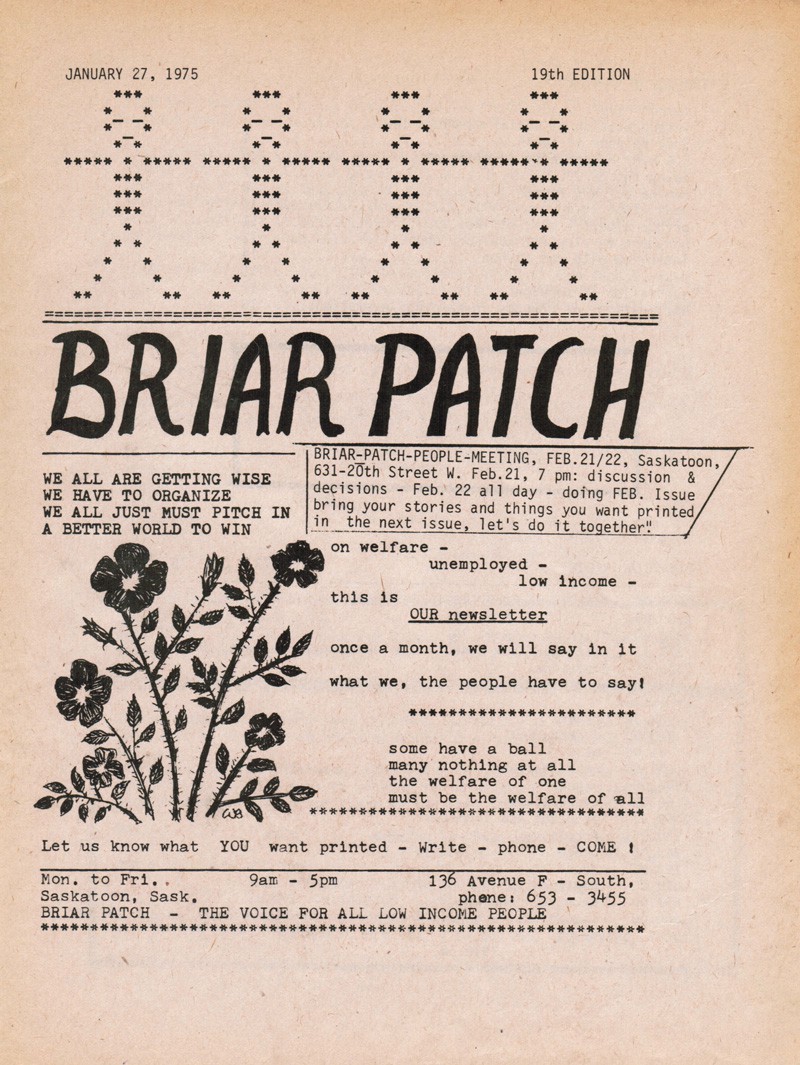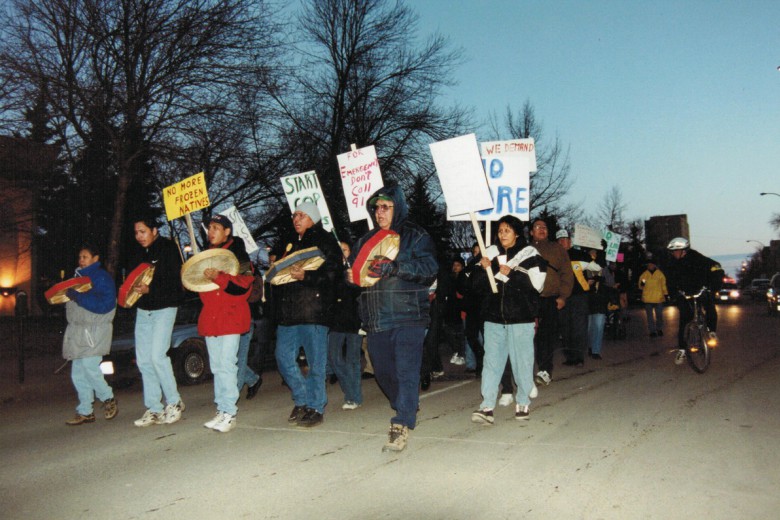
A welfare rights groups in Saskatoon decided in the fall of 1970 that people should be able to know what welfare regulations meant for them. The Unemployed Citizens’ Welfare Improvement Council (UCWIC – pronounced “You Quick”) began a pressure program to get special needs allowances for winter clothing, housing repairs, and transportation to attend job interviews and medical appointments, – all of which had previously been grudgingly given or refused altogether.
As a tactic in the greater strategy of organizing people on welfare, we agreed to focus pressure on the director of the Saskatoon regional office of the Department of Social Services. His name was Brierley.
Mr. Brierley was a very disciplined civil servant. He took the view, apparently, that it was not right for civil servants to get involved in controversies with pressure groups, so he declined all public comments on any matter dealing with specific complaints about the department. In doing that, he became the perfect target. We blamed everything on Mr. Brierley, as if he were personally accountable for every misdeed of every social worker – in fact, for everything done or not done in the whole department.
After several months of organizing, during which UCWIC swelled to over 300 people, the steering committee decided a newsletter was needed. Of course we named it after the unfortunate Mr. Brierley. Briarpatch was born.
The first issue was photocopied in March or April 1971 at the Saskatoon Family Service Bureau (where I was working at the time) on one of the early machines that used rolls of that grey, waxy paper. As a new technology, it was too expensive to continue to photocopy Briarpatch, so we switched to Gestetner. No copies of the first edition remain, because the grey photocopy paper disintegrated within a couple of years. Perhaps some readers have copies of the Gestetnered issues, though only three or four of those editions came to print.
In about 1973 or 1974, UCWIC split over some internal political issues, and Briarpatch evolved into a more broadly focused newsmagazine covering unemployment, women’s and Aboriginal issues, the environment, progressive social policy, agriculture, and rural issues. The official 1973 inauguration of Briarpatch as a magazine makes it now 40 years old, but its root beginnings in UCWIC seem to have continuing power and inspiration as a magazine dealing with the issues of common people and the oppressed.
Adapted and reprinted from Briarpatch’s 20th anniversary issue in 1993.






